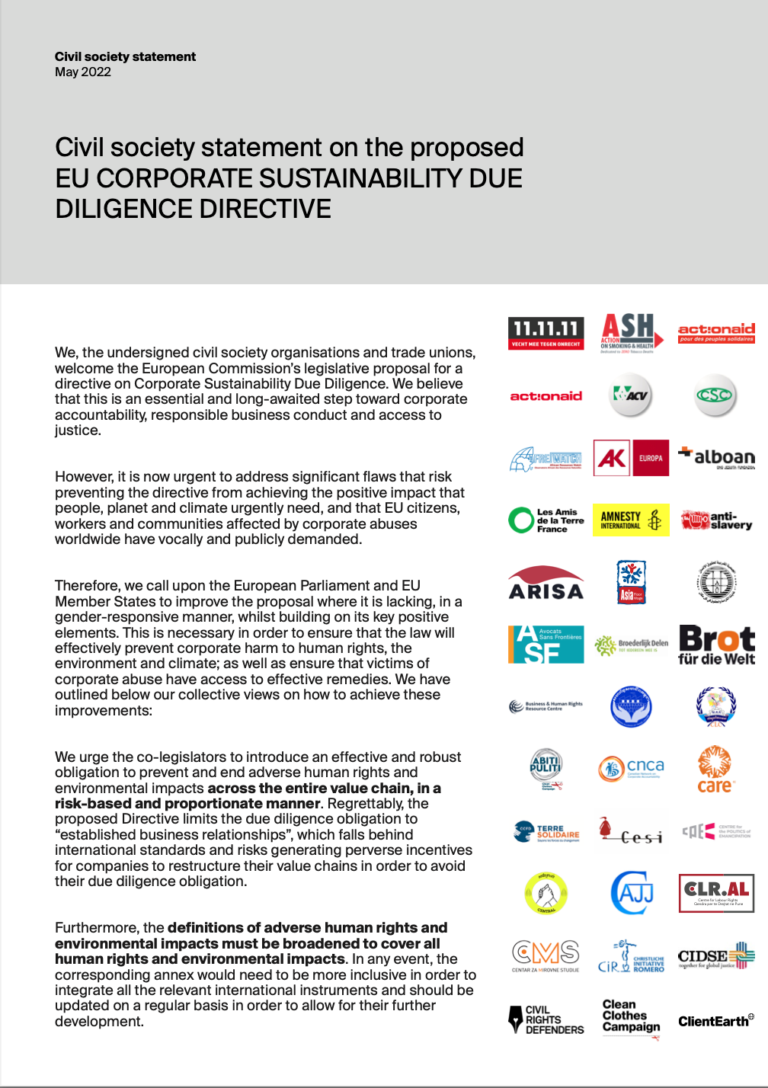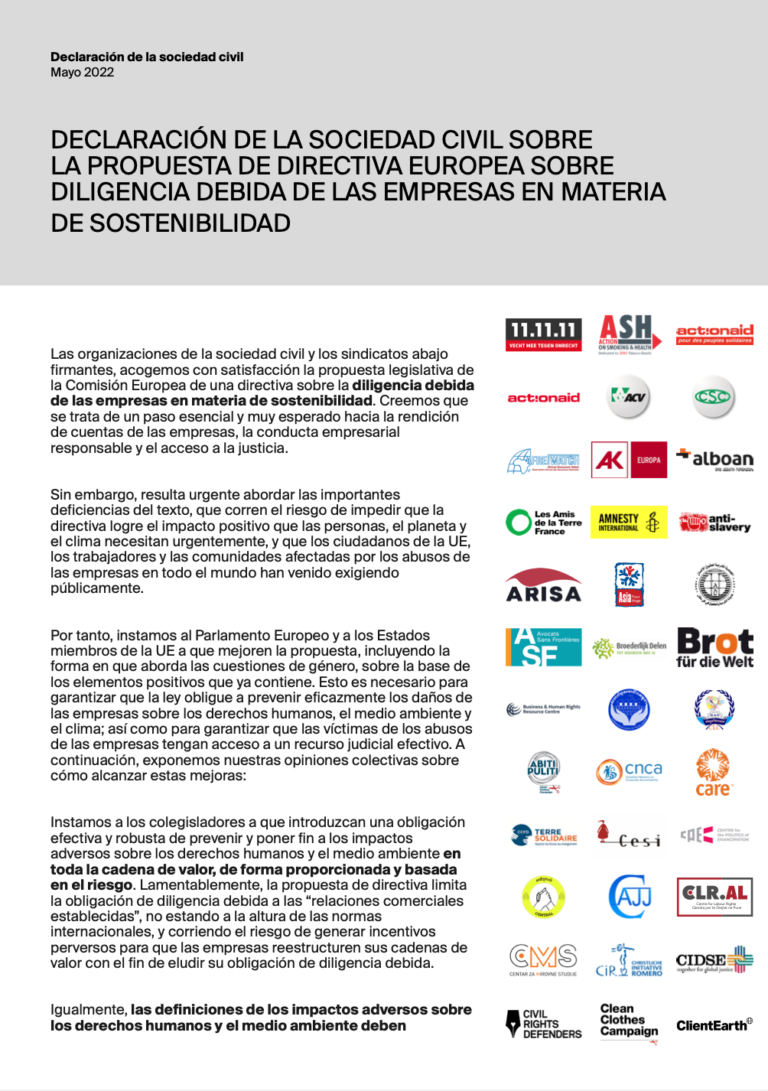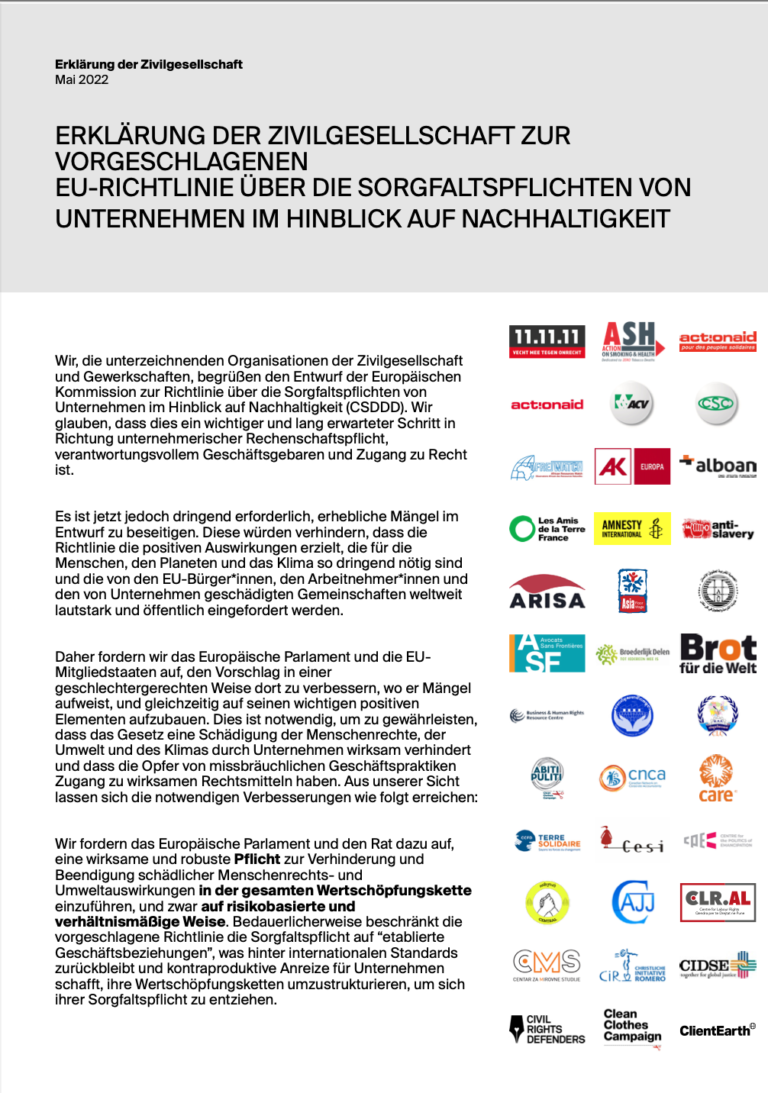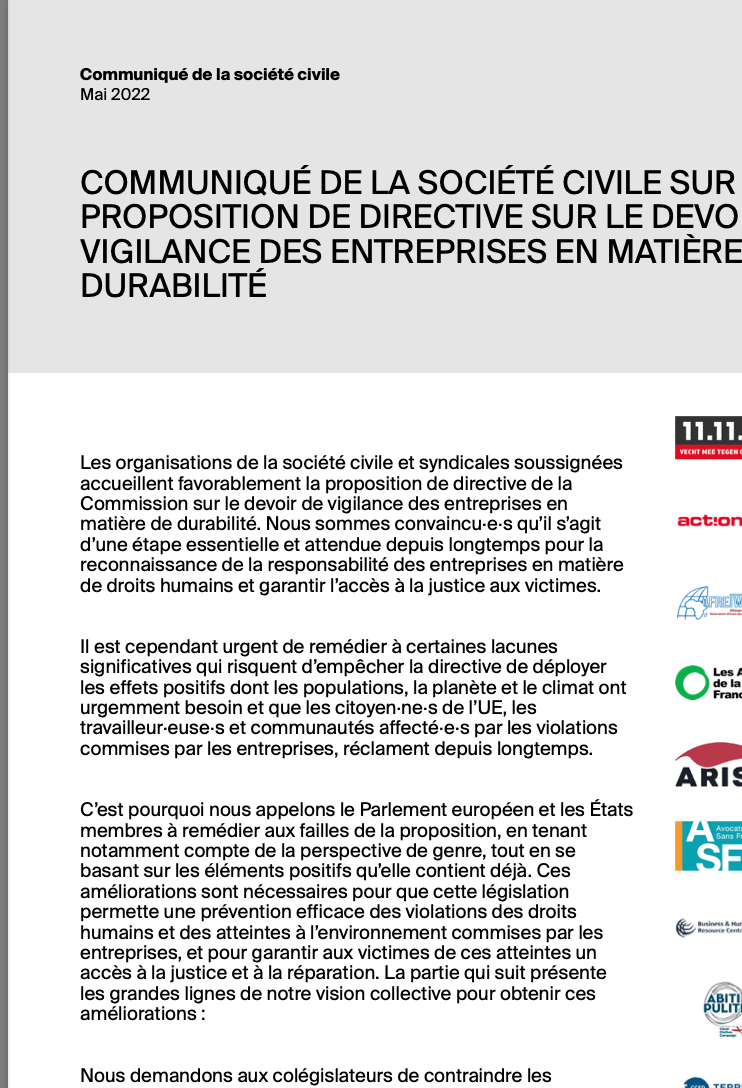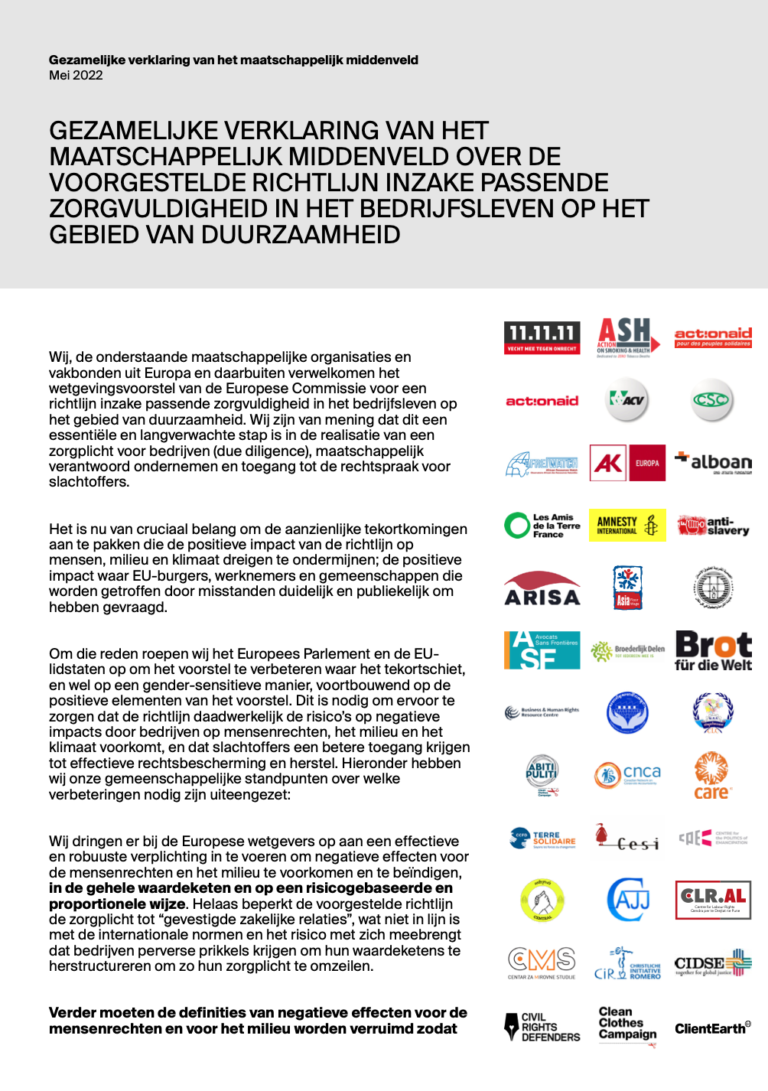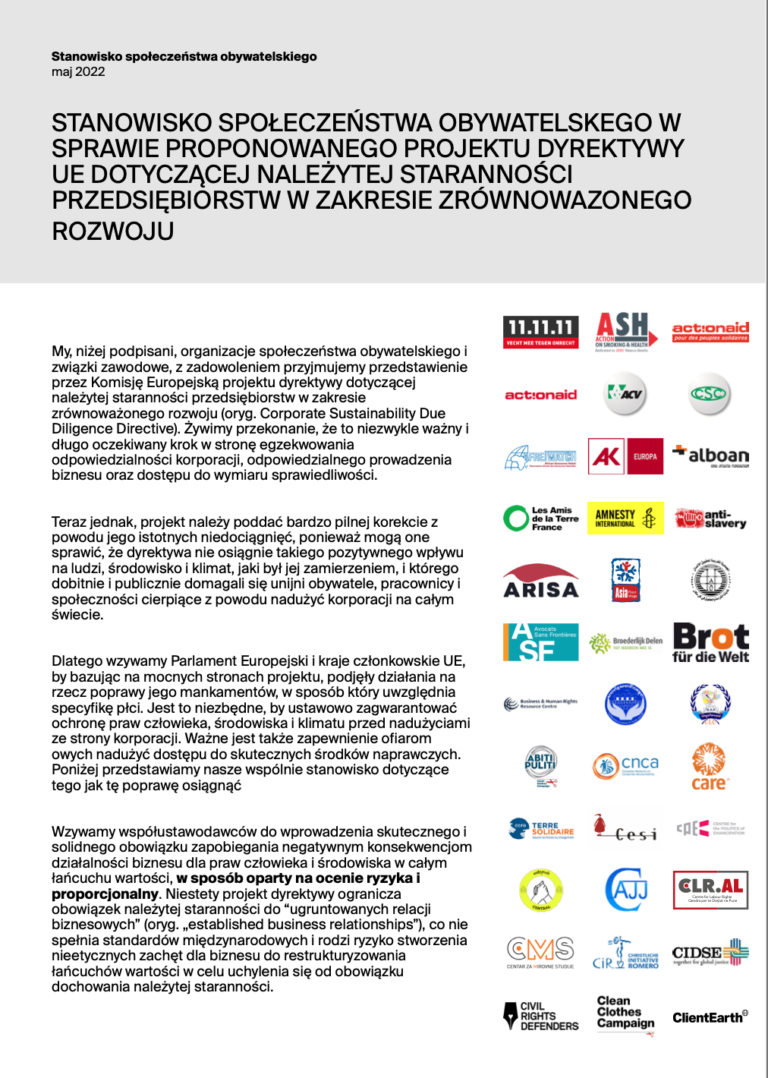On 23 February 2022, the European Commission released its proposal for a directive on Corporate Sustainability Due Diligence. This directive could represent a landmark step forward in minimising the negative impacts of businesses on workers, communities and the environment worldwide. In response, over 220 NGOs and trade unions from around the world welcome the proposal as an essential and long-awaited step toward corporate accountability, responsible business conduct and access to justice.
However, the proposal contains significant flaws that risk preventing the directive from achieving the positive impact that people, planet, and climate urgently need. The undersigned human rights, labour and environmental organisations and networks call on the European Parliament and EU Member States to strengthen the text in line with what EU citizens, workers and communities affected by corporate abuses worldwide have vocally and publicly demanded.
The joint statement outlines our collective views on how to improve the proposal to guarantee that the law will effectively prevent corporate harm to human rights, the environment and climate; as well as provide victims of corporate abuse with access to effective remedies.

